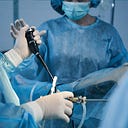Nurturing Life: Guidelines for a Healthy Pregnancy Diet
Pregnancy is a miraculous journey during which a woman’s body undergoes incredible changes to nurture and support the growth of a new life. Proper nutrition plays a vital role in ensuring a healthy pregnancy, not only for the mother but also for the developing baby. A well-balanced and nutrient-rich diet is essential to meet the increased demands of pregnancy and promote optimal growth and development. This article will delve into the vital guidelines for a healthy pregnancy diet to help expectant mothers enjoy this transformative period with confidence and vitality.
Eat a Rainbow of Nutrients
A diverse and colorful diet ensures you receive a broad range of essential nutrients. Include plenty of fresh fruits and vegetables in various colors, providing vitamins, minerals, and antioxidants necessary for maternal and fetal health. Leafy greens, oranges, berries, and carrots are particularly rich in nutrients like vitamin C, folate, and iron.
Embrace Whole Grains
Swap refined grains for whole grains like quinoa, brown rice, and oats. Whole grains are rich in fiber, which aids in digestion and prevents constipation, a common concern during pregnancy. Additionally, they provide a steady energy supply, helping stabilize blood sugar levels and reduce the risk of gestational diabetes.
Protein Power
Protein is a building block for the body, and during pregnancy, it plays a crucial role in the growth of the baby’s cells and tissues. Include lean protein sources, such as lean meats, poultry, fish, beans, lentils, tofu, and nuts. Omega-3 fatty acids in fish like salmon are particularly beneficial for the baby’s brain development.
Calcium is Key
Calcium is essential for developing strong bones and teeth in the growing baby. Ensure an adequate calcium intake through dairy products like milk, yogurt, cheese, and fortified plant-based alternatives. If needed, talk to your healthcare provider about calcium supplements.
Iron for Vitality
During pregnancy, the body requires more iron to support the increase in blood volume and ensure proper oxygen transport to both the mother and the baby. Foods like lean red meat, poultry, fish, beans, and spinach are excellent sources of iron. Combining these iron-rich foods with vitamin C sources can enhance iron absorption.
Hydration is a Priority
Staying hydrated is crucial for all aspects of health, and it becomes even more critical during pregnancy. Drinking enough water helps prevent dehydration and constipation and reduces the risk of urinary tract infections. Aim for at least 8–10 glasses of water daily, and consider incorporating herbal teas and natural fruit juices for added variety.
Healthy Fats
Include healthy fats such as avocados, nuts, seeds, and olive oil in your diet. These fats are essential for developing the baby’s brain and nervous system. They also support the mother’s overall health and can help reduce inflammation.
Limit Processed Foods
While occasional indulgence is acceptable, try to minimize the consumption of processed foods, sugary snacks, and sugary beverages. These items offer little nutritional value and may contribute to excessive weight gain, which can pose risks during pregnancy.
Control Caffeine Intake
Excessive caffeine intake may lead to problems during pregnancy. Limit your caffeine consumption to 200–300 milligrams daily, approximately one to two cups of coffee. Opt for herbal teas or decaffeinated alternatives for a comforting warm drink.
Avoid Harmful Substances
Alcohol, smoking, and illicit drugs should be strictly avoided during pregnancy, as they can harm the developing baby and lead to severe complications. If you have any addiction concerns, seek help from your healthcare provider to quit safely.
A healthy pregnancy diet is a cornerstone of maternal and fetal well-being. Following these guidelines ensures that expectant mothers provide their bodies with the necessary nutrients to support the growth and development of their precious babies. Alongside a nutritious diet, regular exercise, sufficient rest, and stress management are also essential components of a healthy pregnancy. Remember to consult with a healthcare provider or a registered dietitian to tailor a diet plan that best suits your needs, and enjoy this transformative journey with confidence and vitality. Embrace the power of nourishing foods, for you are nurturing life within.
